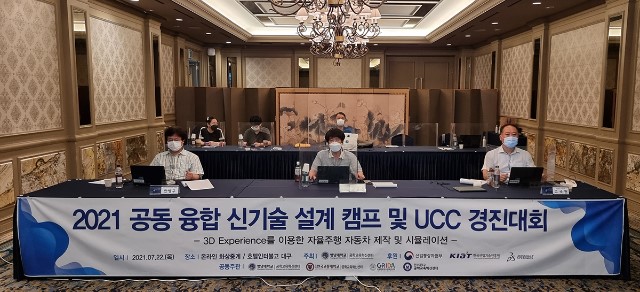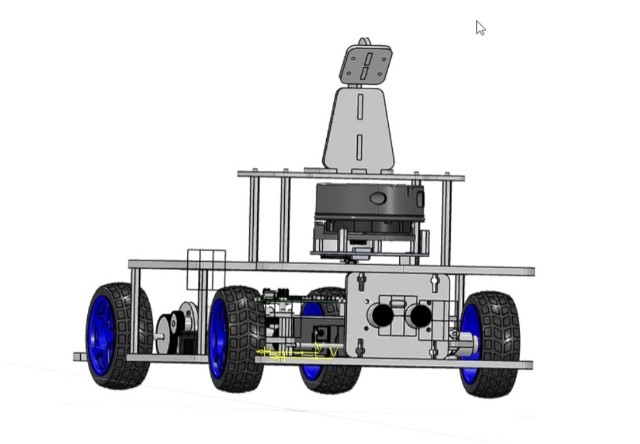‘2021 Joint Convergence New Technology Design Camp and UCC Contest’
‘Digital Twin’ technology-applied autonomous vehicle design and simulation contest held
Sponsored by the YU Engineering Education Innovation Center and co-hosted by engineering education innovation centers of four major universities in Korea
Constructing a collaborative education system between global companies and universities

The YU Engineering Education Innovation Center hosted the ‘2021 Joint Convergence New Technology Design Camp and UCC Contest.’
This contest, which was sponsored by the YU Engineering Education Innovation Center and co-hosted by the engineering education innovation centers of the Korea National University of Transportation, Hall University, and Hongik University, was the nation’s first joint convergence new technology design camp that used digital twin technologies to construct an education collaboration system and to design and simulate autonomous vehicles in cyber space.
It was held in cyber space for a week from July 14 to 21 and the design contest was held at the Daegu Interburgo on July 22.
This is the first time that multiple universities constructed an education and collaboration system in cyber space to provide engineering education for fostering human resources in autonomous vehicles, while hosting production contests.

Through this education collaboration system, it is expected that students will be able to use digital twin technologies to continuously experience automobile engineering, simulation, and production processes, as well as autonomous driving and virtual tests through collaboration that is being emphasized in the new mobility sector.
YU Engineering Education Innovation Center Director Kang Dong-jin (Professor of Mechanical Engineering) who hosted this event commented, “We constructed a collaboration system to provide direct education and experience for students in digital innovation and conversion through the collaboration of multiple universities and global companies. We will provide full support so that many students can experience the latest fourth industrial revolution technologies through continuous exchange and reach-out programs.”
